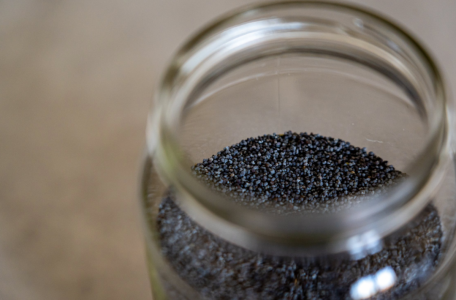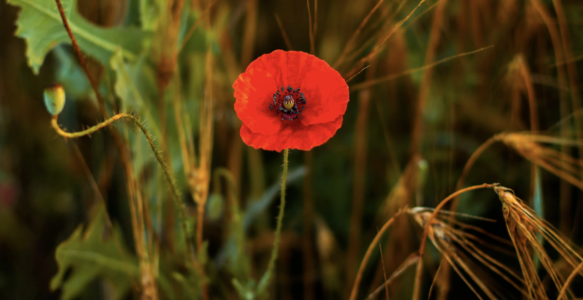Warning: This popular 'natural' tea is poisonous and causing hospitalisation rates to soar
- Replies 12
We Aussies are big fans of a good cuppa – there's nothing quite like a warm mug of tea on a cold day, or iced tea on a hot one.
But as much as we love our brews, we also know that some teas can be better for us than others. Herbal teas, for example, are packed with nutrients and antioxidants that can do everything from improving our digestion to fighting off infection.
One type of herbal tea that's become popular in recent years is poppy seed tea.
Often consumed for its potential pain-relieving properties, this drink is brewed using crushed or ground poppy seeds and water (or sometimes milk). It's been used in traditional medicine for centuries to treat conditions like insomnia and anxiety.
Some people also start drinking poppy seed tea just for the 'high' it gives them. Other people start drinking it when they are looking for a way to treat or alleviate chronic pain.

However, health authorities around Australia have issued an urgent warning about this popular beverage after 19 people were reportedly hospitalised with severe poisoning after consuming it.
After several became ill and had distressing symptoms such as seizures, severe muscle pain, acute kidney pain, and severe muscle spasms, NSW Health and the Department of Health in Victoria urged people to be careful when drinking poppy seed tea.
In Victoria alone, one person suffered a cardiac arrest, while two others had to be admitted to intensive care.
To make poppy seed tea, the seeds must be washed or soaked to remove the remaining opioid coating and debris.
Poppy seeds are widely available in supermarkets, and recent evidence suggests that a contaminant may be to blame for the adverse reactions some people experience when using them to make tea.

'The recent clinical presentations are suspicious for thebaine (an opioid alkaloid) toxicity,' said Deputy Chief Health Officer in Victoria Angie Bone.
'It is possible poppy seeds currently available may have a much higher thebaine content; however, other causes have not been excluded, and this is still under investigation.'
According to her, you cannot tell which poppy seeds have high thebaine content just by simply looking at the seeds.
To those who drink poppy seed tea, please be aware of how dangerous it is and know that a dark brown colour and bitter taste in the wash or tea after it has been brewed may be signs of unusual toxicity.
 Members, if you have any concerns about poppy seed tea or any other herbal beverage, please don't hesitate to get in touch with your local GP for more information.
Members, if you have any concerns about poppy seed tea or any other herbal beverage, please don't hesitate to get in touch with your local GP for more information.
And as always, if you or someone you know begins to experience any symptoms of poisoning, here are some safety measures you can take:
But as much as we love our brews, we also know that some teas can be better for us than others. Herbal teas, for example, are packed with nutrients and antioxidants that can do everything from improving our digestion to fighting off infection.
One type of herbal tea that's become popular in recent years is poppy seed tea.
Often consumed for its potential pain-relieving properties, this drink is brewed using crushed or ground poppy seeds and water (or sometimes milk). It's been used in traditional medicine for centuries to treat conditions like insomnia and anxiety.
Some people also start drinking poppy seed tea just for the 'high' it gives them. Other people start drinking it when they are looking for a way to treat or alleviate chronic pain.

Australian poisonings are on the rise, and poppy seed tea is to blame. Credit: Pexels/Castorly Stock.
However, health authorities around Australia have issued an urgent warning about this popular beverage after 19 people were reportedly hospitalised with severe poisoning after consuming it.
After several became ill and had distressing symptoms such as seizures, severe muscle pain, acute kidney pain, and severe muscle spasms, NSW Health and the Department of Health in Victoria urged people to be careful when drinking poppy seed tea.
In Victoria alone, one person suffered a cardiac arrest, while two others had to be admitted to intensive care.
To make poppy seed tea, the seeds must be washed or soaked to remove the remaining opioid coating and debris.
Poppy seeds are widely available in supermarkets, and recent evidence suggests that a contaminant may be to blame for the adverse reactions some people experience when using them to make tea.

Unwashed poppy seeds are used to create poppy seed tea, which gives a ‘high’ when ingested. Credit: Pexels/Віктор Леончук.
'The recent clinical presentations are suspicious for thebaine (an opioid alkaloid) toxicity,' said Deputy Chief Health Officer in Victoria Angie Bone.
'It is possible poppy seeds currently available may have a much higher thebaine content; however, other causes have not been excluded, and this is still under investigation.'
According to her, you cannot tell which poppy seeds have high thebaine content just by simply looking at the seeds.
To those who drink poppy seed tea, please be aware of how dangerous it is and know that a dark brown colour and bitter taste in the wash or tea after it has been brewed may be signs of unusual toxicity.
Tip
Seek medical attention immediately if you experience any toxic effects following poppy seed consumption.
And as always, if you or someone you know begins to experience any symptoms of poisoning, here are some safety measures you can take:
- Call Triple Zero (000) for emergency assistance
- Go to your nearest emergency department
- If you or someone you know needs help with alcohol or drug use, call DirectLine on 1800 888 236 or visit directline.org.au for information and support to access treatment.







